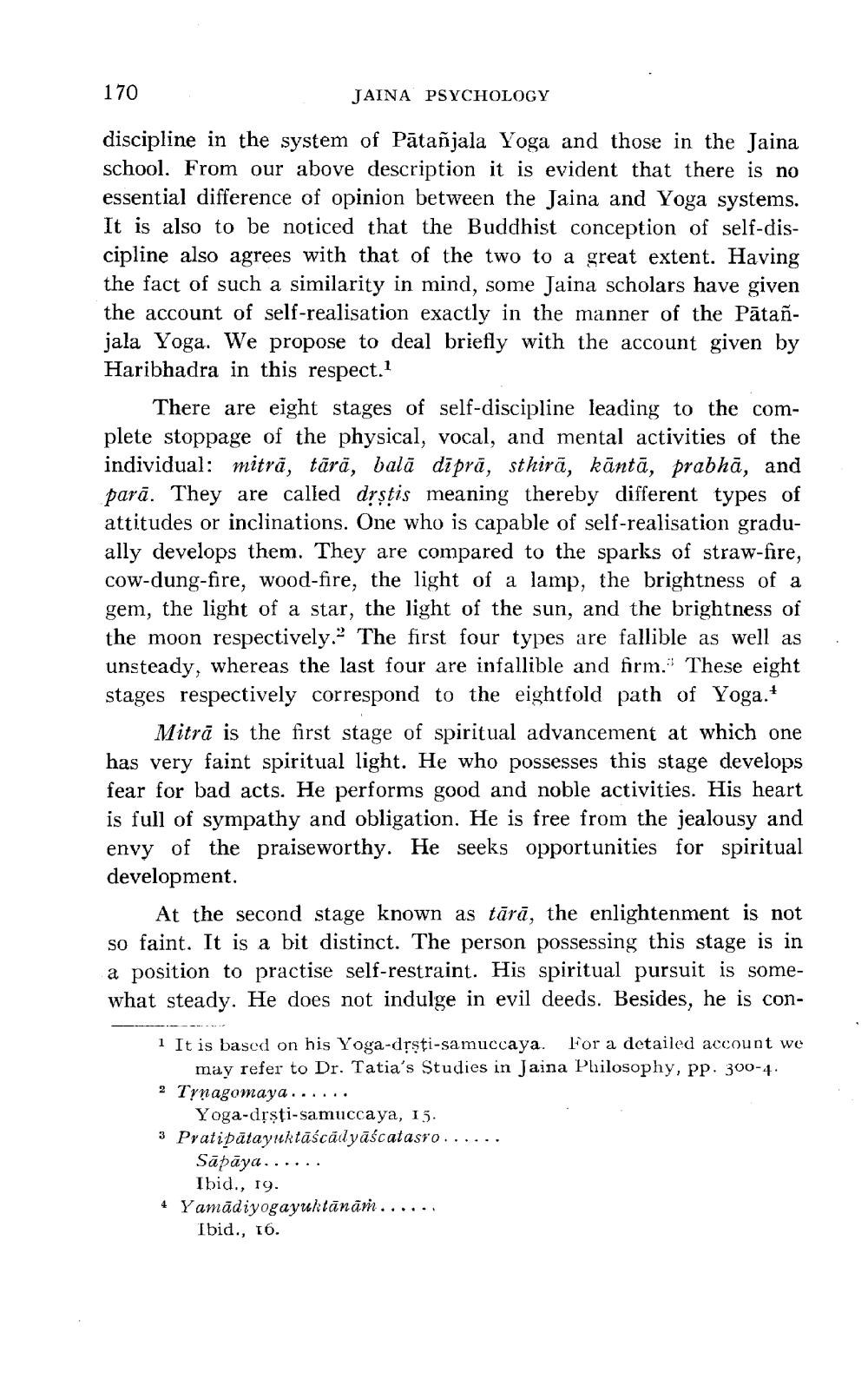________________
170
JAINA PSYCHOLOGY
discipline in the system of Patañjala Yoga and those in the Jaina school. From our above description it is evident that there is no essential difference of opinion between the Jaina and Yoga systems. It is also to be noticed that the Buddhist conception of self-discipline also agrees with that of the two to a great extent. Having the fact of such a similarity in mind, some Jaina scholars have given the account of self-realisation exactly in the manner of the Patanjala Yoga. We propose to deal briefly with the account given by Haribhadra in this respect.1
There are eight stages of self-discipline leading to the complete stoppage of the physical, vocal, and mental activities of the individual: mitrā, tārā, balā dīprā, sthirā, kāntā, prabhā, and para. They are called dṛṣṭis meaning thereby different types of attitudes or inclinations. One who is capable of self-realisation gradually develops them. They are compared to the sparks of straw-fire, cow-dung-fire, wood-fire, the light of a lamp, the brightness of a gem, the light of a star, the light of the sun, and the brightness of the moon respectively. The first four types are fallible as well as unsteady, whereas the last four are infallible and firm. These eight stages respectively correspond to the eightfold path of Yoga.*
Mitra is the first stage of spiritual advancement at which one has very faint spiritual light. He who possesses this stage develops fear for bad acts. He performs good and noble activities. His heart is full of sympathy and obligation. He is free from the jealousy and envy of the praiseworthy. He seeks opportunities for spiritual development.
At the second stage known as tārā, the enlightenment is not so faint. It is a bit distinct. The person possessing this stage is in a position to practise self-restraint. His spiritual pursuit is somewhat steady. He does not indulge in evil deeds. Besides, he is con
1 It is based on his Yoga-drşti-samuccaya.
For a detailed account we
may refer to Dr. Tatia's Studies in Jaina Philosophy, pp. 300-4. 2 Tynagomaya......
Yoga-dṛṣṭi-samuccaya, 15.
3 Pratipatayuktāścādyāścatasro......
Sāpāya.....
Ibid., 19.
4 Yamadiyogayuktānāṁ......
Ibid., 16.




